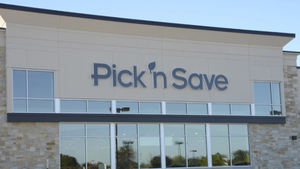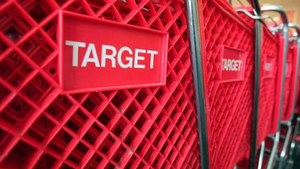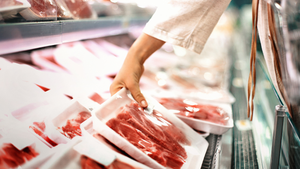Reusability Comes to the Produce Department
'A lot of plastics legislation and a lot of retailers have ignored the produce section,' says Lotus Sustainables CEO Farzan Dehmoubed. "A lot of plastics legislation and a lot of retailers have ignored the produce section," says Lotus Sustainables CEO Farzan Dehmoubed.

On May 4, New Jersey's statewide ban on carryout plastic bags and polystyrene foam will take effect, prohibiting grocers and restaurants in the Garden State from providing the single-use carryout containers. (Single-use paper bags, too, will be prohibited at grocery stores larger than 2,500 square feet.) To Lotus Sustainables CEO Farzan Dehmoubed, bans on plastic carryout bags are a first step—the average U.S. household brings home more than 1,500 of them a year, he says—but one area of the store often gets overlooked with such legislation: the produce department.
See also: Winsight Grocery Business' 2022 Sustainable Packaging Report
Lotus Sustainables, based in Carlsbad, Calif., makes reusable produce bags made of organic cotton and cotton mesh, sold three to a set in three different sizes (small, medium or large). After launching in chains including Meijer and Kroger-owned Ralphs, Lotus is debuting in The Giant Co. this month and will go into 1,300 Target stores across the country in May, Dehmoubed says. The bags are available in the produce department, alongside plastic produce bags. In an interview with WGB, Dehmoubed discussed the movement toward reusables in grocery and why he sees consumers ready for a fresh approach to fresh produce containers.
Christine LaFave Grace: Why is produce packaging the next frontier in reducing grocery retailers' plastics use?
We started our company really on a mission to eliminate plastic from shopping, and once we kind of got down to the numbers, they’re staggering. The average store uses more than 2.2 million produce bags. The impact is ginormous, and the cost is huge, too.
We’ve teamed up with companies like Target, which we’re really excited about. They’re launching this reusable bag initiative into 1,300 stores this May. It’s a huge initiative, and at the same time, other retailers are really seeing the opportunity. We’re launching in April with The Giant Co.; we’re going into all stores with two to five reusable bag racks in every single store. Every retailer we’ve been able to test this with has expanded it chainwide.
People are understanding the impacts of plastic waste in our environment. There is a garbage truck full of plastic that enters our oceans every minute. The average household brings home more than 1,500 plastic bags every year. People are fed up, and consumers are looking for this type of solution. People are like, “Yeah, this is how I used to do it; this is how I can do it, and it makes sense.”
How do you overcome habit? How do you get past, “Hey, that looks cool; I should try that sometime, but right now I’m in a hurry and I just want to stick with what I’m used to”?
What really kind of changed the trajectory for us was offering different signage opportunities, different display options. Once we brought in “Old Me, New Me” signage—it launched us to another scenario. It just changes mindsets. We’re so used to our habits, pulling that plastic and not thinking about it, but this has been a bit of a game-changer for us. We’re selling four times as much in that specific retailer as when we were just clip-stripping in the item.
What have you learned so far in rolling out the product to retailers?
What we’ve found is that people are not just using this at the store; they’re using it at their house. They’re washing their produce in it; they’re using it for all sorts of other things—as a laundry bag, for toys, travel organization. It’s been fun seeing how people are using these.
One of the big wins we’ve seen for retailers is people are jumping in and buying a three-set at $6 or $7—it’s an impulse buy for them—but then they’re coming back and buying multiple sets because they’re seeing, "Hey, these are really cool; I use them all the time, but I need more than three."
The produce category is something that’s been ignored. A lot of plastics legislation and a lot of retailers have ignored the produce section. This is a win-win-win, we feel like. For retailers, there's the [sustainability] impact that it brings and the added sales.
As you're rapidly scaling up, has Lotus itself run into supply-chain issues in producing and distributing the bags?
I think sourcing is a challenge for every manufacturer right now. We’re fortunate in that because we’ve seen such huge growth, we’ve been preparing for this in the past year and a half.
What’s next for Lotus? Where would you like to be in a year or so?
We really see an opportunity to offer reusable produce bags in every grocery store right beside the plastic-bag dispenser. We see the U.S. following trends we see in Europe where certain retailers are completely getting rid of the plastic-bag dispenser. That’s where the exciting impact comes, and that’s where retailers have the opportunity to really step up and be like, “We’re a leader in this space.”
About the Author
You May Also Like






